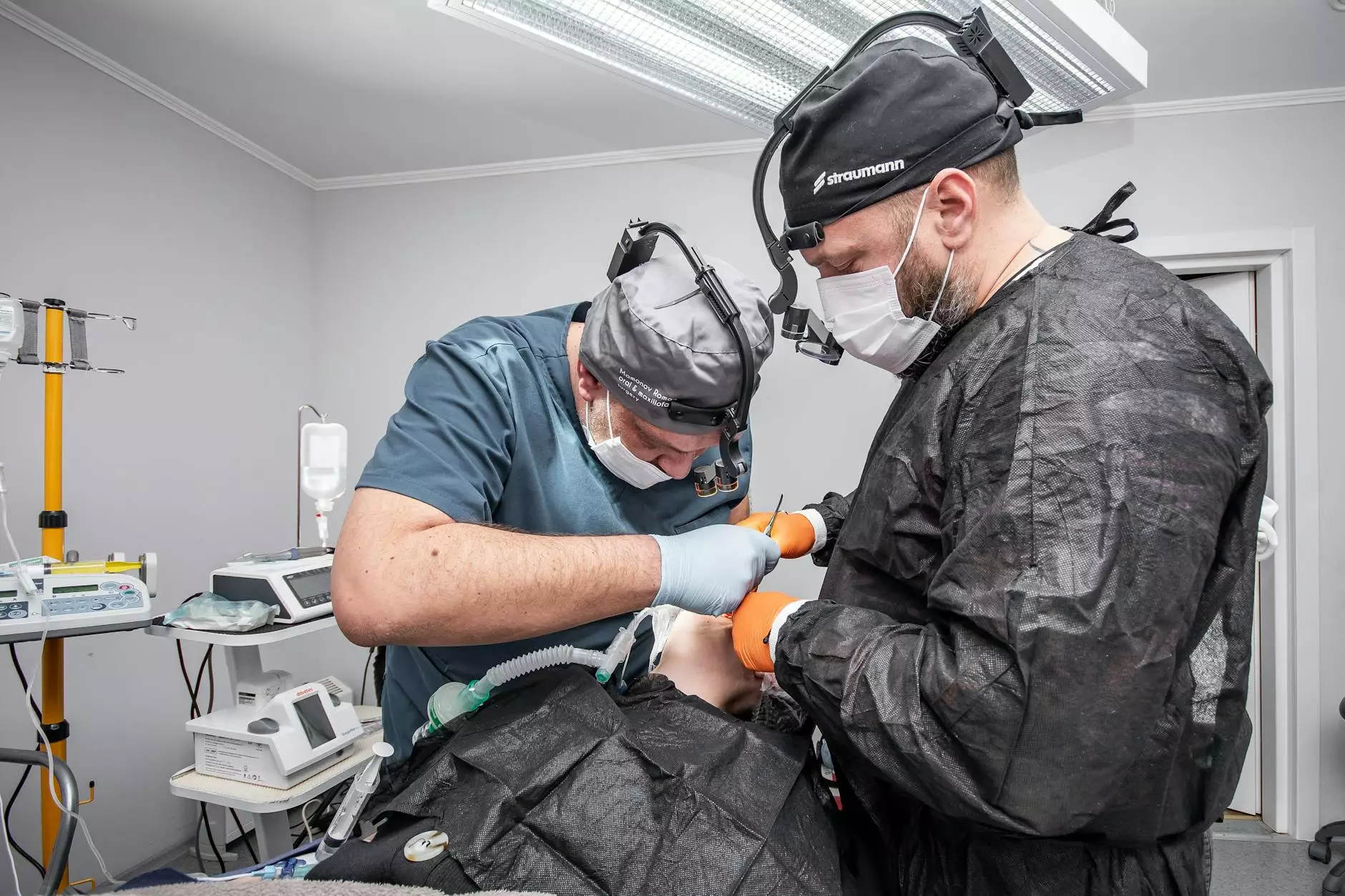Understanding Sleeve Gastrectomy Surgery: A Comprehensive Guide

Sleeve gastrectomy surgery is becoming increasingly popular as a solution for obesity and related health issues. As we delve deeper into this surgical procedure, we will explore its benefits, risks, and what patients can expect throughout their journey. This comprehensive guide aims to provide you with all the necessary information you need to make an informed decision if you are considering this form of bariatric surgery.
What is Sleeve Gastrectomy Surgery?
Sleeve gastrectomy, or vertical sleeve gastrectomy (VSG), is a surgical weight-loss procedure that involves the removal of a significant portion of the stomach, forming it into a tube or "sleeve." This procedure not only reduces the stomach's volume but also significantly impacts the hormones that regulate hunger and satiety, leading to weight loss.
How Does Sleeve Gastrectomy Work?
The surgery is performed laparoscopically, which involves making several small incisions in the abdomen. The surgeon removes approximately 80% of the stomach, leaving behind a thin, sleeve-like structure. This smaller stomach can hold much less food, which leads to early feelings of fullness and a decrease in food intake.
The Role of Hormones
Aside from physically limiting food intake, sleeve gastrectomy surgery also affects hormones such as ghrelin, often referred to as the "hunger hormone." After the stomach is reduced, ghrelin levels significantly decrease, leading to reduced hunger and cravings, making it easier for patients to manage their weight.
Who is a Suitable Candidate for Sleeve Gastrectomy?
While sleeve gastrectomy can be a transformative procedure for many, it is not suitable for everyone. Ideal candidates typically include:
- Individuals with a body mass index (BMI) of 40 or greater.
- Those with a BMI of 35 or greater who have obesity-related health conditions, such as diabetes, hypertension, or sleep apnea.
- Patients who have tried other weight-loss methods without success.
- Individuals committed to changing their lifestyle post-surgery for ongoing weight management.
The Benefits of Sleeve Gastrectomy Surgery
Undergoing sleeve gastrectomy surgery can provide numerous health benefits, including:
- Significant Weight Loss: Patients can lose 60-70% of their excess body weight within the first year following the surgery, contributing to improved overall health.
- Improved Obesity-Related Conditions: Many individuals experience improvements in conditions such as type 2 diabetes, hypertension, and high cholesterol.
- Enhanced Quality of Life: Reduction in weight can lead to a more active lifestyle, better mobility, and enhanced mental well-being.
- Minimal Hospital Stay: The laparoscopic nature of the procedure results in less post-operative pain and shorter recovery time.
What to Expect Before the Surgery
Before the procedure, candidates must undergo a thorough evaluation, including:
- Medical history review and physical examination.
- Psychological evaluation to ensure readiness for lifestyle changes.
- Nutritional counseling to prepare for post-operative dietary adjustments.
Once cleared for surgery, patients typically follow a pre-operative diet to reduce liver size and minimize surgical risks.
The Surgical Procedure
The surgery itself usually lasts between 1-2 hours. General anesthesia is administered, and the surgeon makes small incisions to access the abdomen. The surgery concludes with the placement of a drain, which will be removed shortly after the operation, and a transfer to recovery for monitoring.
Post-Operative Care
The recovery process is crucial for successful outcomes:
- Initial Recovery: Patients typically stay in the hospital for 1-2 days post-surgery and should have someone to help at home for the first few days.
- Diet Progression: A phased diet starting with liquids and gradually advancing to solids helps the stomach adjust.
- Follow-Up Appointments: Regular follow-ups with the healthcare team ensure proper healing and dietary adherence.
Potential Risks and Complications
As with any surgery, sleeve gastrectomy carries risks:
- Infection or complications from anesthesia.
- Bleeding or blood clots.
- Leakage from the staple line.
- Nutritional deficiencies due to reduced food intake.
However, many of these risks can be mitigated by choosing a skilled surgeon and adhering to post-operative care instructions.
Long-Term Success After Sleeve Gastrectomy
Long-term success heavily relies on lifestyle changes, including:
- Regular physical activity.
- Nutritional education and mindful eating.
- Consistency with follow-up appointments to monitor health.
Studies indicate that those who remain engaged with their weight loss journey and support systems can expect to maintain significant weight loss over the years.
Conclusion: Is Sleeve Gastrectomy Right for You?
Deciding to undergo sleeve gastrectomy surgery is a significant choice that can lead to a healthier lifestyle and improved quality of life. Evaluating the pros and cons, understanding the entire surgical process, and following through with committed lifestyle changes are essential steps to achieving lasting success. If you believe you are a candidate for this life-altering procedure, discuss your options with a qualified healthcare provider at clinichealthbeauty.com to embark on your journey toward better health.
Final Thoughts
In summary, sleeve gastrectomy is a powerful tool in the fight against obesity. With proper selection, preparation, execution, and aftercare, individuals can significantly enhance their health and quality of life. Remember, you are not alone on this journey; seek out resources, support groups, and knowledgeable healthcare professionals to guide you through your transformation.



